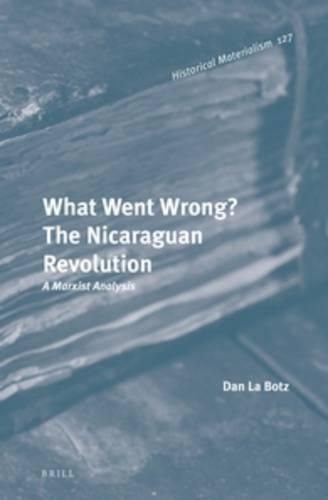Readings Newsletter
Become a Readings Member to make your shopping experience even easier.
Sign in or sign up for free!
You’re not far away from qualifying for FREE standard shipping within Australia
You’ve qualified for FREE standard shipping within Australia
The cart is loading…






This volume is a valuable re-assessment of the Nicaraguan Revolution by a Marxist historian of Latin American political history. It shows that the FSLN (‘the Sandinistas’), with politics principally shaped by Soviet and Cuban Communism, never had a commitment to genuine democracy either within the revolutionary movement or within society at large; that the FSLN’s lack of commitment to democracy was a key factor in the way that revolution was betrayed from the 1970s to the 1990s; and that the FSLN’s lack of rank-and-file democracy left all decision-making to the National Directorate and ultimately placed that power in the hands of Daniel Ortega. Pursuing his narrative into the present, La Botz shows that, once their would-be bureaucratic ruling class project was defeated, Ortega and the FSLN leadership turned to an alliance with the capitalist class.
$9.00 standard shipping within Australia
FREE standard shipping within Australia for orders over $100.00
Express & International shipping calculated at checkout
This volume is a valuable re-assessment of the Nicaraguan Revolution by a Marxist historian of Latin American political history. It shows that the FSLN (‘the Sandinistas’), with politics principally shaped by Soviet and Cuban Communism, never had a commitment to genuine democracy either within the revolutionary movement or within society at large; that the FSLN’s lack of commitment to democracy was a key factor in the way that revolution was betrayed from the 1970s to the 1990s; and that the FSLN’s lack of rank-and-file democracy left all decision-making to the National Directorate and ultimately placed that power in the hands of Daniel Ortega. Pursuing his narrative into the present, La Botz shows that, once their would-be bureaucratic ruling class project was defeated, Ortega and the FSLN leadership turned to an alliance with the capitalist class.